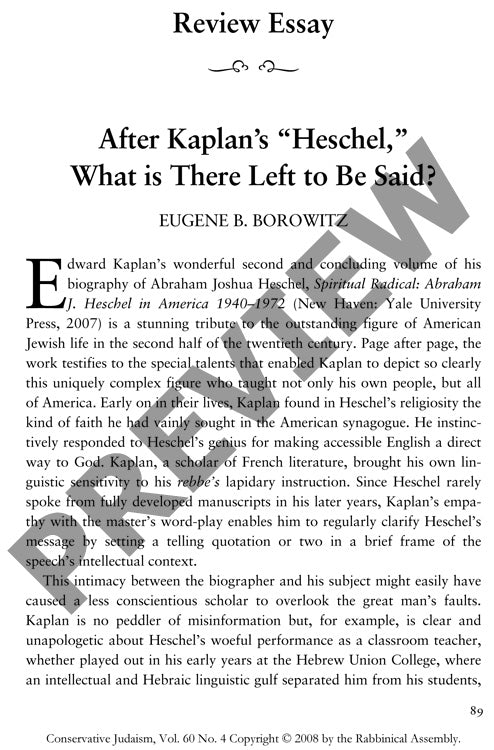After Kaplans O Heschel What Is There L
Couldn't load pickup availability
Abraham Joshua Heschel's transformation from European Jewish scholar to American religious activist raises crucial questions about the evolution of modern Jewish thought. While Edward Kaplan's biographical work "Spiritual Radical: Abraham J. Heschel in America 1940–1972" illuminates much of Heschel's life and work, significant intellectual puzzles remain unexplored. Drawing upon personal experience as Heschel's student and extensive analysis of Kaplan's treatment, this essay identifies four critical areas requiring scholarly attention: Heschel's unexpected turn to rational apologetics in "God in Search of Man," the hermeneutical framework needed to decode his non-linear writing style, his shifting emphasis from theological to social ethical interpretations of prophecy between 1936 and 1962, and his approach to reconciling ethical imperatives with Jewish law. Kaplan's biography commendably presents both Heschel's strengths and limitations, including his classroom struggles and disorganized writing habits. Yet the deeper question of how Heschel's thought evolved under American influences like Reinhold Niebuhr and the civil rights movement—transforming him from a scholar of divine-prophetic communication to a leader in social justice—demands further investigation. While Kaplan provides an essential biographical foundation, a more thorough analysis of Heschel as a religious thinker is needed to fully understand his theological methodology and intellectual development.

More Information
-
Physical Description
-
Publication Information
Published
ISBN
-
Publication Credits
Eugene Borowitz

